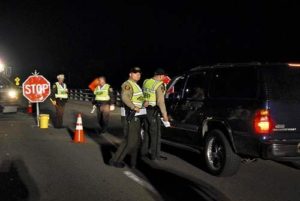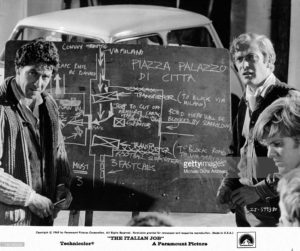In order to ensure the legality of an Arkansas DWI/Sobriety checkpoint, the police must maintain and balance constitutional safeguards against the purpose of the checkpoint. The United States Supreme Court has held that traffic checkpoints with suspicionless stopping of vehicles is Constitutional if the stops are designed for the regulatory, non-investigatory purpose of ensuring traffic safety through checking licenses, registrations, and inspection requirements. The Court stated that these “are essential elements in a highway safety program.” The United States Supreme Court has also examined the State’s interest in preventing drunk driving, the extent to which the checkpoints further that interest, and the degree of intrusion the roadblocks pose for those stopped, holding that the purpose of sobriety checkpoints is traffic safety and not police investigation.
The National Highway Traffic and Safety Administration (NHTSA) has disseminated the case law factors into easily comprehended manuals, the “Saturation Patrols and Sobriety Checkpoints Guide: A How-to Guide for Planning and Publicizing Impaired Driving and Enforcement Efforts,” and “The Use of Sobriety Checkpoints for Impaired Driving Enforcement.” These manuals, oftentimes used in police training, are published for and taught to police so that they may grasp the basic constitutional safeguards required of them in an effort to ensure that the police conduct legal sobriety checkpoints.
The Arkansas Supreme Court has outlined the following guidelines:
(1) roadblocks do not require a warrant;
(2) a statewide program was not a prerequisite to instituting a constitutional roadblock;
(3) a plan embodying explicit, neutral limitation on the conduct of the individual officers is required; and,
(4) a person may be removed from the roadblock for further inquiry, regardless of where they fall in the preset, numerical rotation of cars being checked.
Additionally, factors to be considered in determining the reasonableness and validity of a checkpoint stop include:
(1) Whether established policy or guidelines are followed by the officers conducting the roadblock or checkpoint;
(2) Whether the decision to institute the roadblock and its location was made at the management level or by officers in the field;
(3) Whether non-traffic personnel such as criminal investigators participate in the roadblock;
(4) Whether the officers conducting the roadblock are supervised;
(5) The average length and detention of persons stopped; and,
(6) Whether the checkpoint operates to stop all on-coming traffic or some arbitrary portion thereof.
Further, the balancing test the police must use to weigh state interests against constitutional safeguards may be divided into six parts:
(1) Supervision of the individual officers in the field;
(2) The limited discretion of the officers in stopping vehicles;
(3) The amount of interference with legitimate traffic;
(4) The subjective intrusion on the part of the travelers;
(5) The supervisory control over the operation; and,
(6) The availability of a less intrusive means of promoting the legitimate government interest.
If the police fail to comply with these Constitutional considerations, in part or in full, then they have conducted an illegal sobriety checkpoint. As a result, the stop and any evidence seized from the stop must be suppressed as a matter of law. Meaning, if you are charged with driving without a Driver’s License, Driving While Intoxicated, Possession of Controlled Substance, etc as a result of an Unconstitutional Roadblock/Checkpoint, you could have the charges dismissed and be found not guilty.
Part Two: The Police Have to Make and Follow a Sobriety Checkpoint Plan
*The analysis in the rest of this blog is based on the Whalen v. State opinion delivered by the Arkansas Court of Appeals in January of 2016. The decision was appealed by the Prosecution to the Arkansas Supreme Court, who have stated they will deliver an opinion before the end of the year. That opinion would of change this analysis.
The Arkansas Court of Appeals has very recently examined the principle of an individual’s Fourth Amendment Rights in relation to the strong government interest in eradicating drunk driving, holding that an individual’s reasonable expectation of privacy is not subject to arbitrary invasions solely at the unfettered discretion of officers in the field. Whalen v. State, 2015 Ark. App. 706, 478 S.W.3d 249 (2015), reh’g denied (Jan. 20, 2016), reh’g overruled.
In Whalen, the Arkansas Court of Appeals underscored the importance of a constitutionally valid checkpoint plan. The Court clarified that simply noting that The Arkansas State Police followed the Arkansas State Police policies and procedures in conducting the checkpoint was not sufficient in proving the checkpoint’s constitutionality.
The Arkansas Sobriety Checkpoint Plan in the Whalen case.
While the Prosecution argued that this plan was in accordance to the Arkansas State Police Policy and Procedures manual, even a cursory glance reveals that this plan is so completely lacking in information, it is obvious there was “no limitation on the discretion of the officers in the field.”
Dependence upon and following the ASP Policy and Procedures Manual in this instance did not save this particular checkpoint from being unconstitutional. In the Whalen case, the Arkansas State Police intended to stop every vehicle, but would use their discretion – without qualifying the limits to their discretion—to allow some vehicles to pass in order to “avoid lane blockage or potential traffic backup for prolonged periods of time.” This means that whether the stop was made depended only on the law-enforcement officer’s discretion based on his or her subjective assessment of the level of traffic. “[T]he Fourth Amendment requires objective facts supporting the stop or a plan embodying explicit, neutral limitations.”
In addition to planning to stop every vehicle without a clear plan regarding traffic congestion, the ASP also failed to publicize the location of the roadblock. Furthermore, while only a factor and not a requirement, the officer’s failure to record how many vehicles they came in contact with beyond those ticketed or arrested prevents any possible determination on the effectiveness of the checkpoints. These shortfalls demonstrate just how thoroughly the ASP failed to follow not only their own guidelines, but the Constitutional safeguards required of them.
In addition to making the plan, the police also have to follow the plan. For example, if the police say they are going to pull over every third car, but then pull over every other car, or the plan states that the checkpoint will be held in x location, but it is set up in location y, the stop could be held to be illegal. My favorite example is when a driver was stopped at 1:33 a.m., but the plan stated that the checkpoint would be over by 1:30 a.m., and the charges were dropped.
If you think the Fayetteville, Fort Smith, or Van Buren, Arkansas DWI/Sobriety Checkpoint you were stopped at was unconstitutional, then give us a call at 479-782-1125.




